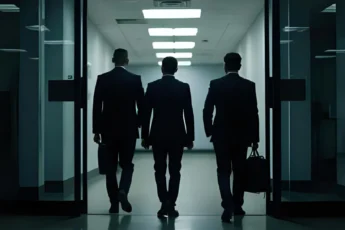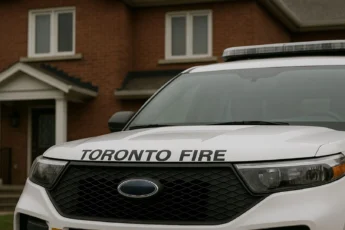This week, City Council regulated short-term rentals. I believe these changes will help preserve affordable housing in Toronto, protect neighbourhoods, and respect the rights of homeowners. pic.twitter.com/FNNPsub4oZ
— John Tory (@JohnTory) December 9, 2017
A Final Ruling on Short-Term Rentals in Toronto
Toronto has introduced strict rules on short term rentals like AirBNB
Toronto has officially introduced strict new rules for short-term rentals, including Airbnb and similar platforms. The city’s long-awaited decision marks the end of a legal battle between the City of Toronto and Airbnb landlords, setting clear boundaries for the short-term rental market.
Toronto’s Short-Term Rental Rules: The Final Decision
On Monday, the province’s Local Planning Appeal Tribunal (LPAT) ruled in favour of the City of Toronto, upholding the city’s 2017 decision to tighten regulations on Airbnb and other short-term rental operators.
These measures aim to protect housing availability and reduce pressure on Toronto’s already limited rental supply. The tribunal’s adjudicator described the rules as “a reasonable balance” that ensures both housing access for residents and continued support for business and tourism in the city.
Mayor Tory: “the right direction when it comes to regulating short-term rentals”
Mayor John Tory welcomed the decision, calling it “good news for Toronto residents and a step in the right direction.”
He emphasized that these new rules will help keep neighbourhoods livable while bringing much-needed structure to the city’s short-term rental market.
Landlords can only offer short term rentals in their own property for 180 nights a year
Under Toronto’s updated short-term rental regulations:
- Landlords can only rent out their principal residence for up to 180 nights per year.
- The same rule applies to secondary units, such as basement apartments.
- Homeowners may rent up to three bedrooms in their primary residence year-round.
Essentially, landlords can no longer own investment properties strictly for short-term rental use. The city’s goal is to return thousands of homes to long-term residential use and help make Toronto’s housing market more accessible.
Landlords and short term rental websites like AirBNB will pay fees
The new regulations also introduce registration and licensing fees:
- Landlords must register each rental unit with the city and pay a $50 registration fee.
- Short-term rental platforms like Airbnb will pay a $5,000 one-time license fee, plus $1 per night booked through their service.
These financial requirements help fund enforcement while encouraging compliance among both hosts and platforms.
The Impact on Toronto’s Rental Market
Roughly 21,000 properties have been listed as short-term rentals across Toronto in recent years. With the new restrictions, about 5,000 of those homes are expected to return to the long-term rental market, easing the city’s housing shortage.
Although short-term rentals can still be profitable, many landlords will need to reconsider their investment strategy. Transitioning to long-term rentals can provide more stability and fewer compliance risks under the city’s new rules.
What Landlords Should Do Next
If you currently rent your property on Airbnb or another short-term platform year-round, these rulings will take effect in the new year. Now is the time to review your rental strategy.
Consider switching your property to a traditional long-term rental to stay compliant and avoid potential penalties. If you need help managing the transition, LandLord Property & Rental Management can guide you through the process.
If you need help listing, leasing, and managing your investment property, you can contact us anytime.



